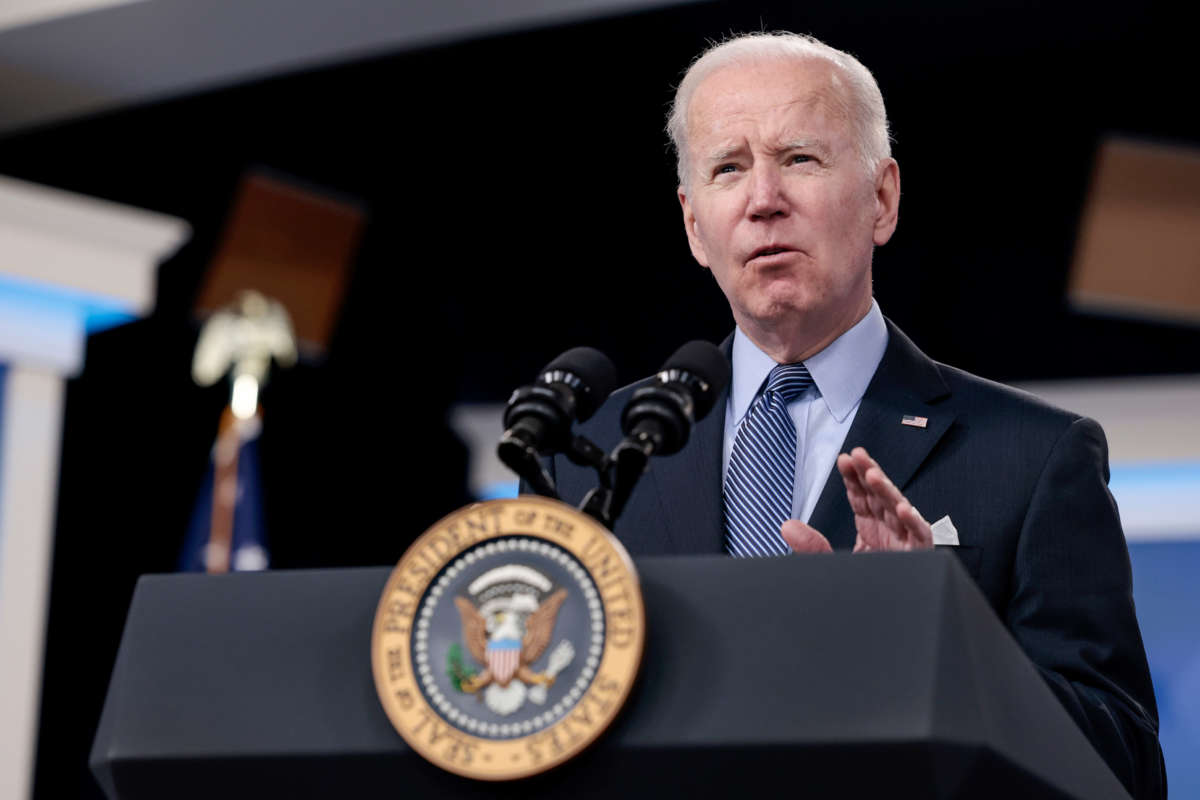On Wednesday, President Joe Biden officially announced that his administration will be extending the student loan payment pause and erasing default status for millions of borrowers so that they can get a “fresh start” when payments eventually restart.
The administration will extend the pause through the end of August, Biden announced. “I know folks were hit hard by this pandemic. And though we’ve come a long way in the last year, we’re still recovering from the economic crisis it caused,” he said. “This continued pause will help Americans breathe a little easier as we recover and rebuild from the pandemic.”
The Education Department announced that it will also be moving borrowers out of default, which could ease financial burdens and uncertainty for millions. There are currently over 7 million student loan borrowers in default, according to the agency’s data.
Progressive lawmakers had previously advocated for the elimination of default status for these borrowers, saying that the measure was a step that Biden could take to relieve pressure and confusion for individuals who are in debt. They said that the Education Department could legally do so because of debt relief provisions in the CARES Act.
But progressives’ ultimate goal is for Biden to cancel student debt — preferably all of it, some lawmakers and advocates say.
Biden’s announcement prompted an explosion of calls for him to cancel student debt. On the campaign trail, he promised to cancel $10,000 worth of loans for every borrower, but he has refused to follow up on that pledge over a year into his presidency, despite progressive lawmakers’ and advocates’ warnings that his failure to do so will jeopardize Democrats’ chances of winning seats in Congress this fall.
“With costs rising, the last thing working people need right now is another costly monthly payment. Now is the time to finish the job and cancel student debt,” the Congressional Progressive Caucus wrote on Twitter. The lawmakers noted that student debt disproportionately affects Black and Brown people and is also a huge burden on seniors.
Sen. Elizabeth Warren (D-Massachusetts), a leader in Congress on the issue of student debt, praised the extension but called on the president to do more. Warren has previously urged Biden to cancel up to $50,000 of debt per borrower, noting the vast economic impacts that borrowers suffer under the weight of student loans.
“Last week, my colleagues and I led nearly 100 Members of Congress in urging [President Biden] to extend the federal student loan payment pause and today the President heeded our calls,” she said. “This extension is critical, but now is the time for the President to use his authority to #CancelStudentDebt.”
Many debt advocates brought up a 2020 tweet from Biden’s official campaign account saying that he would cancel a minimum of $10,000 of student debt if elected.
I agree, @POTUS. https://t.co/YhUopYFjYW
— Mondaire Jones (@MondaireJones) April 6, 2022
The Debt Collective, which has been advocating for Biden to eliminate student debt, said that the pause extension is just a bandaid for the problem, which will always loom as long as student debts aren’t canceled. On Monday, the group rallied in front of the Department of Education to encourage Biden to sign an executive order canceling all federal student debt.
“Now, millions of families will be able to keep billions of dollars in their pockets — a testament to the collective power of debtors,” said Braxton Brewington, Debt Collective spokesperson. “But instead of pushing pause on the student debt crisis every few months — kicking the can down the road — President Biden should actually solve the crisis by picking up his pen and canceling student debt.”
Trump is silencing political dissent. We appeal for your support.
Progressive nonprofits are the latest target caught in Trump’s crosshairs. With the aim of eliminating political opposition, Trump and his sycophants are working to curb government funding, constrain private foundations, and even cut tax-exempt status from organizations he dislikes.
We’re concerned, because Truthout is not immune to such bad-faith attacks.
We can only resist Trump’s attacks by cultivating a strong base of support. The right-wing mediasphere is funded comfortably by billionaire owners and venture capitalist philanthropists. At Truthout, we have you.
Truthout has launched a fundraiser to raise $50,000 in the next 9 days. Please take a meaningful action in the fight against authoritarianism: make a one-time or monthly donation to Truthout. If you have the means, please dig deep.
